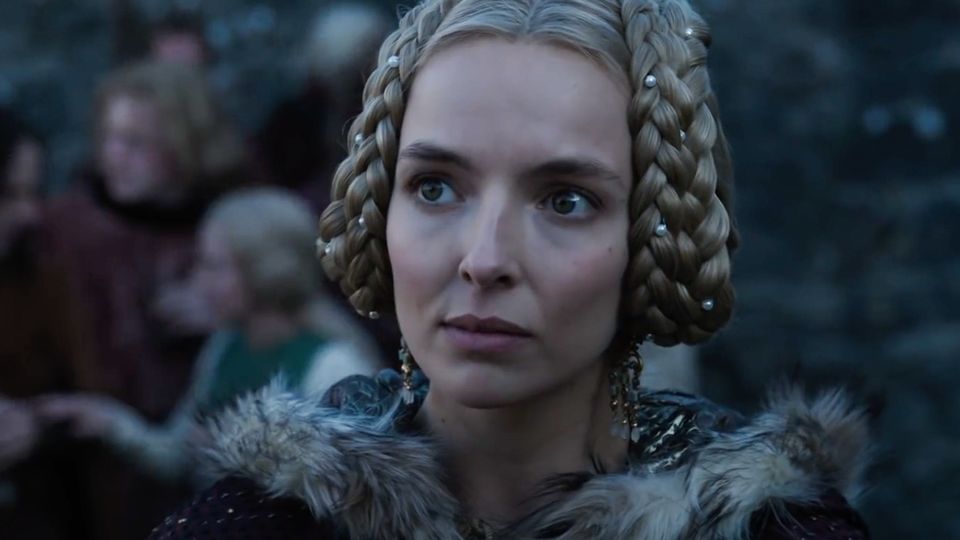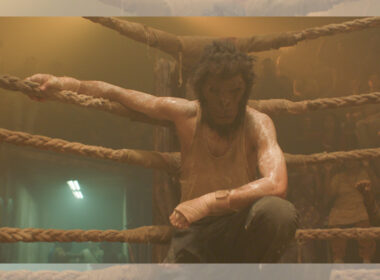The Last Duel is based on a true story. We know before the first image is shown, even before the title, slowly fading in on the screen with solemn reverence. The story in question is the account of a dispute between friends turned enemies over an allegation of rape in 14th century France.
Lady Marguerite de Carrouges (Jodie Comer) accuses Jacques Le Gris (Adam Driver) of rape on a day her husband, and Le Gris’ arch-enemy, Jean de Carrouges (Matt Damon), was away. The story is framed, Rashomon-style, in three chapters, where the same event is told from different points of view.
First, we hear from the men and their political machinations. Carrouges is a gloomy, cranky soldier with a gullible devotion to serving the king. At the same time, Le Gris is a witty politician with a reputation as a womaniser, which he always shares with his friend and Lord, Pierre d’Alençon (Ben Affleck). It’s two chapters where the patriarchy is the status quo never questioned, with outdated notions of honour and pride made to go hand-in-hand with the fabric of society. It’s in the politics, war, and even the perception of sex: animalistic, primal and crude, yet accepted by all. Well, not everyone.
The last word goes to Marguerite de Carrouges in the final chapter, presented as “the truth according to”, with emphasis on the word truth, which lingers on the screen a couple of seconds longer. Utterly devoid of nuance, it sets off to break the stereotype of how female characters are represented in rape-revenge stories and continues Marguerite’s quest to own her story, against manly odds. She’s not a tragic character, as much as she results from a tragic patriarchal system that can only recognise her as property. Her mother-in-law asks her to drop the case, her friends shun her, her whole sexual history is analysed and scrutinised by other men. Marguerite is a lonely woman unable to fight for her own right to justice.
It’s interesting how the chapter has its own style, as if each writer was responsible for their own. The script, co-authored between Damon, Affleck and Nicole Holofcener, works precisely because of this clever division. Carrouge’s section is dull and idealistic to the point of exhaustion, Le Gris’ funny and charming, but also fragmented and unreliable. Marguerite’s, most likely the one written by Holofcener, is unapologetic for its little subtlety. In a great moment, a stallion breaks from the stables to try to mount Carrouge’s mare; the camera lingers on Marguerite. Even she doesn’t miss the metaphor.
The problem is how the film tries to take its own cake and eat it too. The parallels made to the #metoo movement fail to translate anywhere beyond superficial parallels, winks and nods. When Marguerite proudly claims that “she will not be silenced”, you get the level of good intentions and surface-level scratching.
Scott seems to understand this. And full disclosure – in my opinion, he has influenced the style of blockbusters more than any other director. He shoots the film with his eyes closed (which he probably did, even at the age of 83).
The duel itself is a tremendous affair of blood, grit, sweat and dramatic flair. Scott’s prerogative is always to entertain, but he also cleverly understands the script’s needs, offering the same detail and refinement that each chapter deserves. I always appreciated Scott’s care to not take the spotlight from the characters and the script. Shot by shot, he may be one of the most economic directors who has ever lived.
Is The Last Duel good? It’s a good idea crafted with the bluntness of a broad sword. The actors shine, especially Driver, Comer, and a hilarious Affleck in a role that deserves to give his career a second breath. But its themes have been at the forefront of media for the past five years, and there’s little new it brings to the table.




